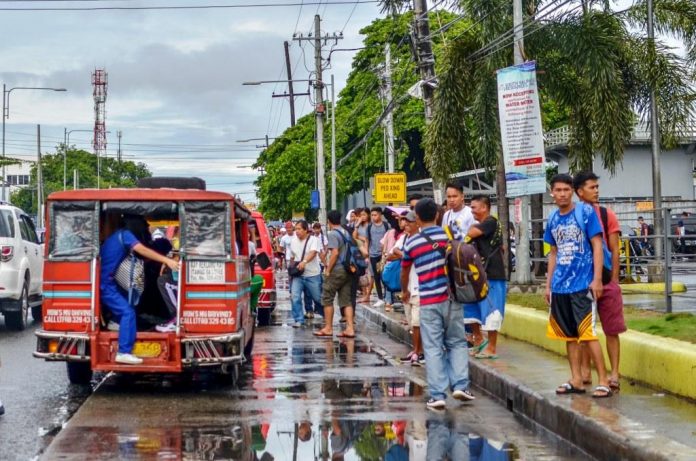
ILOILO City – Drug-addled drivers make poor driving decisions and this puts the lives of their passengers at risk. Invoking public safety, the Highway Patrol Group’s (HPG) Provincial Highway Patrol Team-Iloilo thus urged drivers, most especially of public utility vehicles (PUV), to undergo voluntary drug testing and for PUV operators to make this a regular practice.
Ensuring PUV drivers are drug-free is a way of protecting the riding public from road mishaps, explained Police Executive Master Sergeant Pedro Pericon, officer in charge of the Provincial Highway Patrol Team-Iloilo.
Drivers hooked on drugs, he added, also have unreliable driving reflexes and easily get agitated.
“Very prejudicial sa safety sang riding public ang isa ka driver nga nagagamit sang illegal drugs,” said Pericon.
The police officer also reminded PUV operators about their obligation to ensure public safety mandated by their certificate of public convenience or franchise.
“Posible mangin liable sila kon may matabo. PUV operators must practice extraordinary diligence when it comes to safety,” said Pericon.
HPG itself used to conduct random drug tests. Drivers who flunked were made to undergo drug rehabilitation.
But HPG eventually stopped its drug testing. Pericon cited leadership changes in the police and the steep cost of the procedure.
Data from the Iloilo Police Provincial Office showed that each month an average of 10 persons die in vehicular accidents in the province.
To date since Jan. 1 this year, the IPPO already recorded 102 road mishap fatalities.
Most of the vehicular accidents involved motorcycles but there were also passenger jeepneys, private vehicles and taxis, among others, said Police Colonel Roland Vilela, provincial police director.
“We must do something to stem the rising statistics on vehicular accidents and deaths,” he stressed.
The Provincial Highway Patrol Team-Iloilo also urged PUV operators to make sure their drivers are not reeking with alcohol when driving.
Don’t drink and drive, stressed Pericon, as this is a sure way of figuring in a vehicular accident.
His team, according to Pericon, visits various transport terminals to remind PUV drivers and operators about the dangers of drunk driving.
The Provincial Highway Patrol Team – Iloilo enforces traffic rules and regulations fairly, he stressed.
Pericon observed that what’s mostly lacking among drivers is awareness on the proper use of public roads.
“Indi man tanan pero may mga drivers kulang gid ‘ya sang education with regards sa paggamit sang karsada. Like may ma-overtake sa solid line which is indi puede. Pag-abot sa city may ‘Slowdown’ sign pero sige or wala sila naga-respond. May ‘No Parking’ sign pero naga-park gid,” lamented Pericon.
The Highway Patrol Group is mandated to also help implement local traffic ordinances, enforce the law related to carnapping, highway robbery, Presidential Decree (PD) 1612 or anti-fencing law, PD 96 or illegal attachment of vehicles, and other crimes involving the use of motor vehicles on highways./PN



